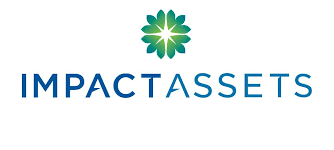The Economics of Sustainable and Impact Investing
Read Time
4 min read
Posted on
May 7, 2018

 It’s an obvious point too many impact investing skeptics still miss.
It’s an obvious point too many impact investing skeptics still miss.
Far from simply catering to progressive individuals looking to “invest their values,” environmental, social and governance (ESG) factors provide critical insight into a company’s viability and long-term economic performance. It’s not ancillary analysis, it’s critical fundamentals.
If you like this, subscribe here for more stories that Inspire The Future.
This realization—that the basic discipline of investment research needed to change to include ESG—was a pivotal moment for Erika Karp (pictured above), and a key to success in developing a truly integrated research framework in her pursuit of sustainable and impact investing.
“Economics is a wonderful way to think about, and put a framework around, social constructs,” says Erika, founder and CEO of sustainable investment advisory firm Cornerstone Capital Group. “When you see business structures that are compelling, that kind of training is very important.”
Erika started out at Credit Suisse, and then moved on to lead the Global Sector Research team at UBS, where her interest in ESG analysis developed organically. During this time, she took on leadership of the socially responsible research team and became an early advocate for sustainable, impact investing.
“I got more and more excited about the possibilities of this new investing model, and started speaking not just internally, but outwardly as well.”
That advocacy and expertise led to impressive leadership roles at the top echelons of the impact movement, including a membership in the World Economic Forum, Erika’s work with the United Nations and her association with the Clinton Global Initiative, to name a few.
Operating at that level gives her a true insider’s perspective into impact investing, having established relationships in different areas of the capital markets—including corporations, non-governmental organizations, regulatory agencies, exchanges, wealth asset managers, investment banks, accountants and others.
“Sometimes people say ‘ESG investing,’ but that doesn’t make sense,” Erika argues. “ESG is a discipline, and once you have that discipline, then you can do impact or sustainable investing. It’s a form of enhanced analytical capability. Transparency, improvements in data, the nature of social media, the rapid movement of information; all those factors are at play, too. But ESG is a push towards a more conscious type of investing—and that’s the big deal.”
It all involves having a macro capital markets view. Erika notes it’s not about moving millions or even billions, but trillions of dollars towards impact, especially when considering ESG imperatives like climate change, women’s economic empowerment, animal welfare, education, ocean pollution, potable water and increasing broadband access.
“To give you a sense, in 2017 maybe $400 billion of venture money was moved towards alternative energy. We need to move $1.5 trillion a year if we’re going to achieve anything like the COP 21 [United Nations Framework Convention on Climate Change] objectives. And that’s just for alternative energy. If you can’t get the capital markets working and having money flow towards progress, we won’t be able to do it.”
That macro view is tied directly to the firm’s offerings. She specifically points to Cornerstone’s investment research credibility, on par with that of an institutional investment bank; corporate governance expertise in line with that of an asset manager; and the due diligence/client advisory perspective Cornerstone brings as a registered investment advisor.
“We put those all into one integrated firm, and that’s never been done before,” says Erika. “We don’t think of ESG or impact investing as an asset class. We think it should be completely integral to the investing process. We think it’s all investing, because all investing has an impact—you just don’t necessarily know what it is.” Given this philosophy, Cornerstone is 100% focused on sustainable and impact investing, with most of its clients also targeting competitive financial returns.
That said, donor advised funds and similar philanthropy-focused investment vehicles are critically important “portals” for wealth management clients to access impact investing, Karp adds.
“We are seeing a transformation of traditional philanthropy strategies towards impact investing, which makes sense. But ultimately, we’re going to move even further towards market return investing with social impact.”
As for successful entrepreneurs and business leaders looking to harness the power and size of capital markets to generate a measurable social/environmental benefit alongside a financial return, what advice does she offer?
“They need to combine their pragmatism with their ideology. It has to be both pragmatism and analytics, along with ideology and sensibility. Then you need to find people you really trust. It’s as simple as that.”
If you like this, subscribe here for more stories that Inspire The Future.
Overview
Sustainable and impact investing, grounded in rigorous ESG analysis, is essential for understanding long-term corporate viability and channeling trillions of dollars toward critical social and environmental goals, with firms like Cornerstone Capital Group integrating these principles into mainstream investment research to drive measurable financial and societal returns.
AI-Generated Overview.






